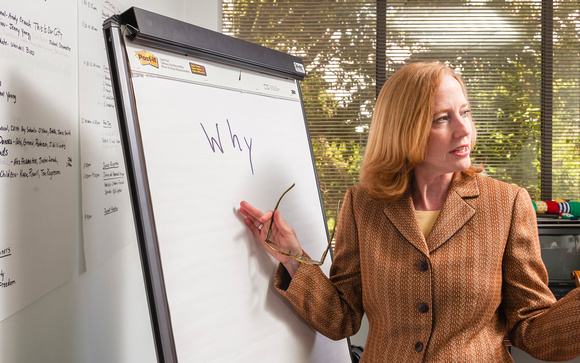The eraser came hurling directly at me. I had just asked my favorite professor if he could explain the concept he was teaching in our summer statistics class one more time. The concepts were challenging for me, and my professor lost patience with my continual questions.
I stopped breathing for a few seconds, grabbed my books and dashed out of the room. I headed for the student center to collect myself, only to find the entire class right behind me offering support.
Their question: Why did that happen?
The answer: I guess I had finally asked one too many questions.
Throughout college, I held the theory that if I had a question, there must be at least one other person in the room with the same or similar question, and it was my duty to ask it. At that stage of my life, I had not contemplated the impact of the question on the recipient. It was all about me getting answers.
Fast forward to this summer. I have had the opportunity to spend a good bit of time with a young woman interning for Your Philanthropy. She is heading to college soon for her first year, and one of her favorite questions for me as we have worked on various projects has been simple and straightforward: Why?
I tackled her questions and tried to make sure the answers made sense from her perspective. But then one day, while on a site visit to a local nonprofit, I observed her asking the same question to someone at the organization, “Why?”
I quickly realized the person answering didn’t understand the value of the question. Our intern’s “Why?” held all kinds of different meaning for someone in her 18-25 year-old age group trying to understand what was happening.
Experienced donors ask “Why?” usually to learn for “what reason, cause or purpose.” When a younger donor asks “Why?” it’s a good idea for our generation to pay close attention and take time to analyze the question itself. We need to review what was behind the question, as well as what it actually is that doesn’t make any sense to them.
I have learned that when Millennials say something doesn’t make sense, they mean it. And they won’t engage or become a part of something they don’t understand.
I have started keeping a list of the questions from this generation, and I have already had many revelations on how to work with younger donors to make sure they are comfortable with their giving plans.
Yes, my professor did apologize that day for throwing the erasers. He showed up in the student center shortly behind the rest of the class, and we worked it out. He continues to be one of my all-time favorite professors.
Today I still like to ask questions. It’s how I process information and ultimately learn. Some call it a gift – others a curse. I suppose it depends on where you stand when I’m asking the questions.


Flying erasers! Gotta love it:)
Very insightful. It really makes me consider my responses to my own children when they ask Why. Am I overlooking a great opportunity to teach and engage…Thanks for sharing!
Dawn will you be posting or blogging further information on this subject? It has always been interesting to me to learn the differences in the perspectives, beliefs, and attitudes of various generations.
One of the best blogs I’ve read in a while,….the power of questions, the passion of a new generation and the discipline to really listen…. Thanks for writing!